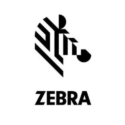Hundreds of Users Gain Self-Sufficiency to Meet their Reporting Needs


Zebra Technologies Corporation offers the broadest range of enabling solutions to identify, track, and manage critical assets, people, and transactions for improved business efficiencies. Headquartered in Lincolnshire, IL, Zebra designs and sells specialty printing devices that print variable information, bar-coded labels, RFID tags, receipts, and ID cards on-demand at the point of issuance.
Challenges
Zebra’s IT team instituted Project Merlin, a global business transformation initiative designed to integrate the data from Zebra’s 50 offices and legacy source systems worldwide to provide management with “a single version of the truth” for business operations.
The three-year project involved a global ERP implementation of Oracle Release 12, which was first deployed in Europe and later to North America in Feb 2012.
“After implementing the Oracle package, one of the first things we realized is that we’d need extensive reporting capabilities to report on Oracle ERP data,” said Deepak Kaul, Director of Change Management & Process Improvement at Zebra. “Oracle R12 does come with plenty of canned reports, but most of them are very generic.”
Zebra’s corporate culture relies heavily on extensive business intelligence reporting capabilities. End-users need drill-down capabilities—they want to be able to download reports, have reports delivered automatically via email, and they also want the capability to push reports out to the customer base.
IT had its hands full with user requests. According to Kaul: “It took several weeks to develop a complex view, and even after development, we would get perpetual requests to change it. For example, ‘Hey, I want this particular field now,’ or ‘I want new columns attached to it.’ It was a nightmare because there was no end to the development cycle for each and every report.”
Searching for a solution, Zebra purchased Oracle BI Applications, but found there was still a significant amount of work involved to get the solution up and running, especially with Zebra’s global environment of diverse legal entities and currencies. Oracle BI Apps represented a decent starting point, but did not contain enough content for Zebra’s BI reporting needs.
Another issue was that Zebra’s business required real-time data for up-to-the-minute inventory views for shipping purposes. This capability was not available with Oracle BI Apps.
From IT’s perspective, they had two choices: Either build in-house, customized views to support user information, or buy another reporting tool to enhance the reporting capability within Oracle BI. The build choice presented many challenges: a huge amount of labor was required to build the views from scratch; the amount of time it would take to ultimately complete the project; and the specialized technical resources required on an ongoing basis for change management during upgrades.
Zebra’s IT team decided to buy a reporting solution instead.
Solution
“That is how our journey started—we were looking for a unique reporting solution that would fit our many requirements, including working with Oracle BI Apps, and contacted Magnitude to learn more about their solution from a technology perspective,” said Kaul. “We did our due diligence and were very careful to select the right vendor. Magnitude was the best fit for our needs in the marketplace.”
Zebra’s IT team adopted a best practice approach to the implementation of Angles for Oracle (formerly Noetix) Angles Generator for Oracle BI, working with the Magnitude Professional Services team to thoroughly understand the solution and its technology during the process. Because of this, IT was able to implement Angles for Oracle and run reports almost instantly after implementation.
IT showcased Angles for Oracle reporting capabilities to Zebra’s end users by holding department-specific training sessions starting with those that worked in manufacturing, receivables, and on the shipping docks. After two months, 500 end users were successfully leveraging hundreds of views to build their own reports, requiring almost no additional support from IT. Typical report examples are Work in Process (WIP) requirements by locator, downtime by employee, reservations by item, and finished goods stock levels.
Results
More than 500 Zebra employees are actively using the successful integration of Magnitude and Oracle technology to meet their business intelligence needs on a daily basis. More than 2,000 reports are being generated every day and Zebra expects these numbers to increase after their deployment to Asia.
“I think our reporting initiative has been very successful, and the main reason for its success is because our users are self-sufficient,” said Kaul. “The users have as many reporting needs as ever, but they don’t call us as often. They are able to get the data they need for their departments on their own.”
Our measure of success is not just the installation component, but also time spent developing reports has decreased by 80 percent since the Angles for Oracle deployment.